The kingdom of Sir Michael Kadoorie
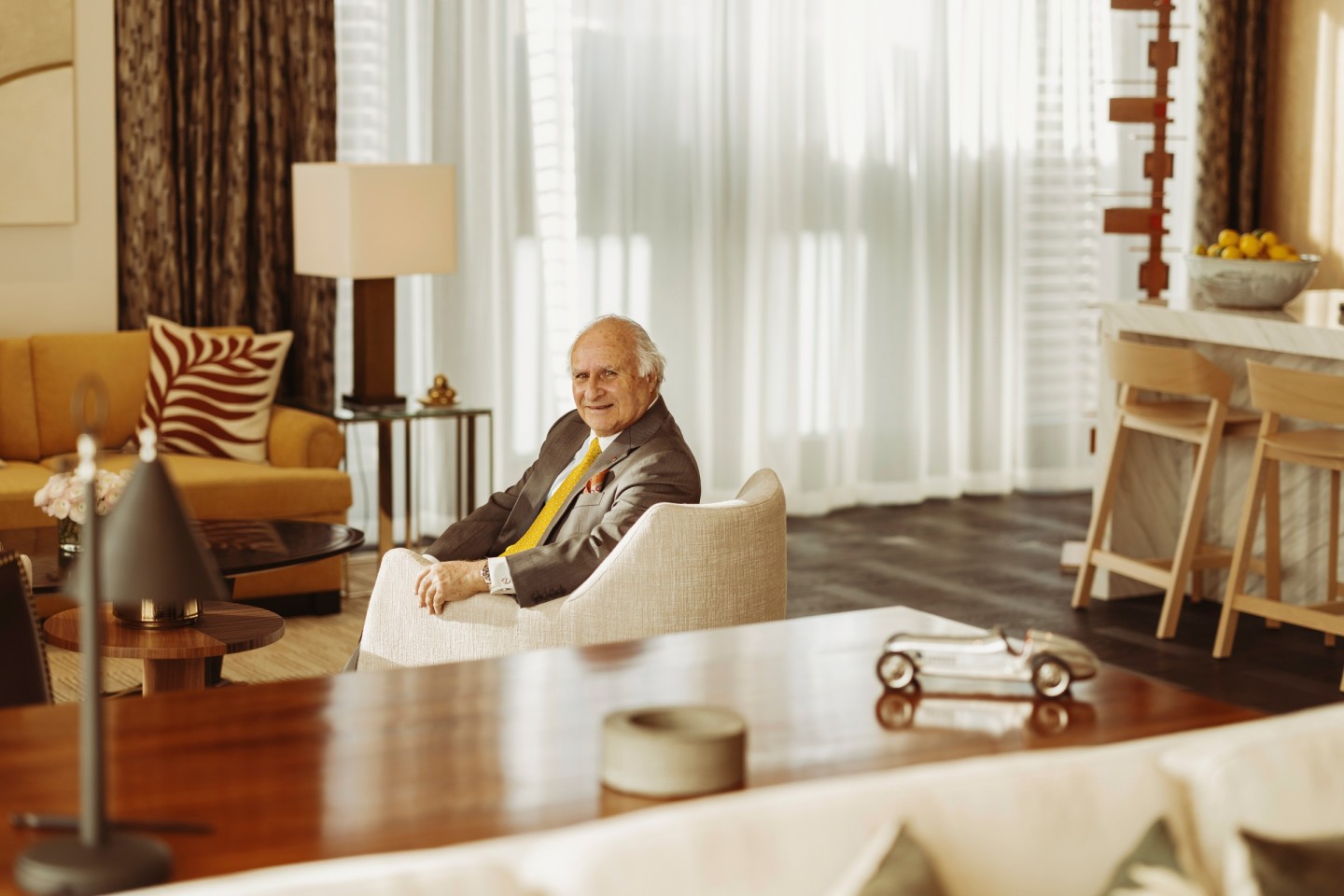
Simply sign up to the Property myFT Digest -- delivered directly to your inbox.
Anyone who’s traversed the roundabout at Duke of Wellington Place in the past few years will have clocked a large construction project at the intersection of Grosvenor Place and Grosvenor Crescent, on the edge of Belgravia. Where an unassuming mid-20th-century office building had long stood, there was abruptly, in 2017, a gaping hole spanning that entire curved block. Slowly and painstakingly, starting six storeys underground, a new structure emerged. Six years later, its bay windows face out over Hyde Park Corner and Buckingham Palace Garden; its rooftop commands a view that on a clear day reaches from Canary Wharf to White City. Drive up under the new porte cochère on Grosvenor Place and you’ll enter a courtyard shaded by 120-year-old Japanese maples; wisteria and ivy vines have just begun their sinuous climb up the façade.
It was a long time in the making for a hotel – even one that intends to be world-beating, with ultra-luxe residences, a spa, a subterranean ballroom and what are hoped will become two destination restaurants. But the construction of the new Peninsula London, which will open later this year, was modest compared with its actual gestation period. “I had been looking [for the right location] for 35 years,” says the Hon Sir Michael Kadoorie, chairman of The Hongkong and Shanghai Hotels, which owns The Peninsula Hotels. “We looked at buying sites, and renovating hotels; and one either found you in the wrong location, or the property was beyond in terms of expense, or you had the wrong partner.”
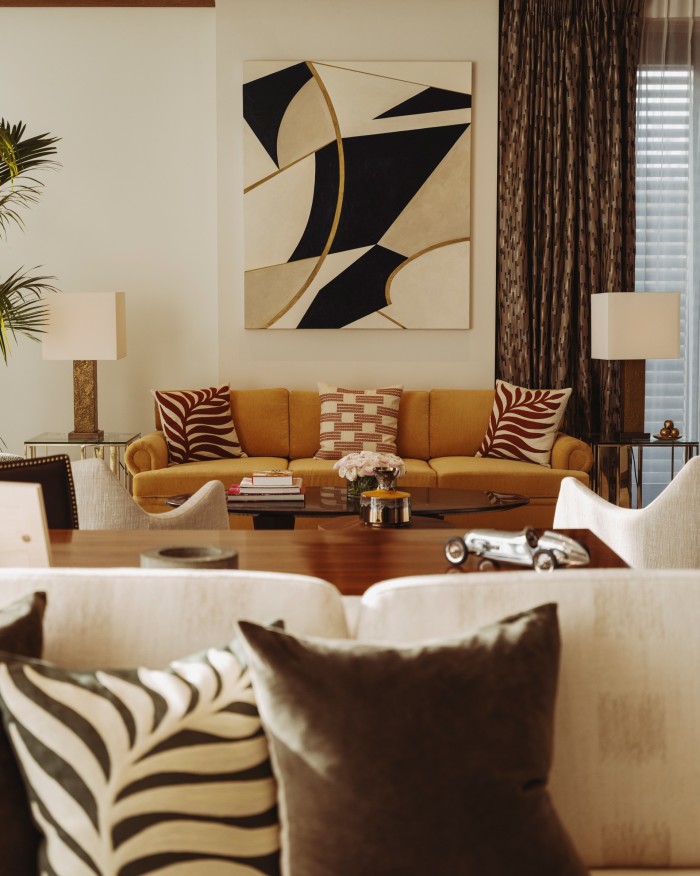
We are having lunch in one of the London site’s 25 residences, its interior finishes – along with the hotel’s guest rooms and suites – designed by Peter Marino. You’d be hard-pressed to imagine a more ideal location for the universe-masters who gravitate to this type of home (among them Citadel honcho Ken Griffin, who reportedly paid £100mn for one of the penthouses in 2019). Judging by our immediate surroundings – a chef’s kitchen finished in gleaming sycamore; a foyer-sized master wardrobe with leather detailing – the apartments, which range from one to five bedrooms and share a private pool, fitness centre and spa treatment rooms separate from the hotel’s, more than measure up to their situation. They’re capacious – some clocking in at more than 5,000sq ft, with 3m-high ceilings. They have access to the same services and amenities that hotel guests do: in-residence dining at any of the four individual dining venues, the chauffeured Rolls-Royce fleet, laundry and dry cleaning, dedicated concierges. Kadoorie tells me that 70 per cent of them are sold (most of them off-market; prices are strictly on application). The rest, mostly smaller units, “have been withdrawn for now, because we’ve reached a stage where we can [focus on presenting] the whole hotel, and then put that last lot out.” He smiles, then understates: “There is no lack of interest.”
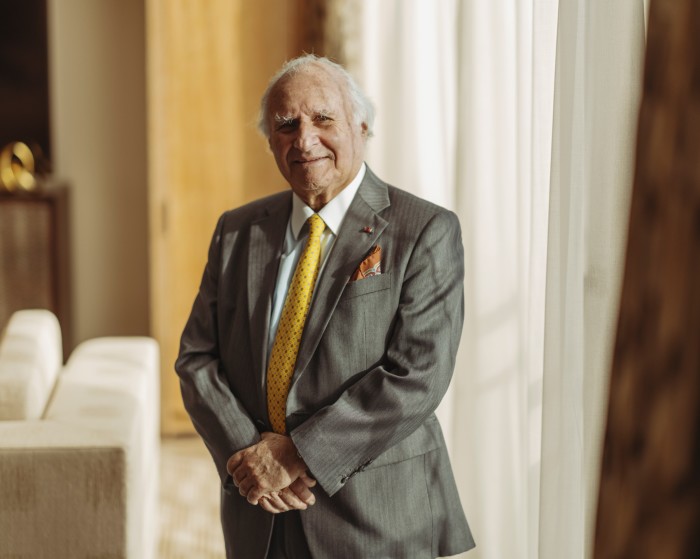
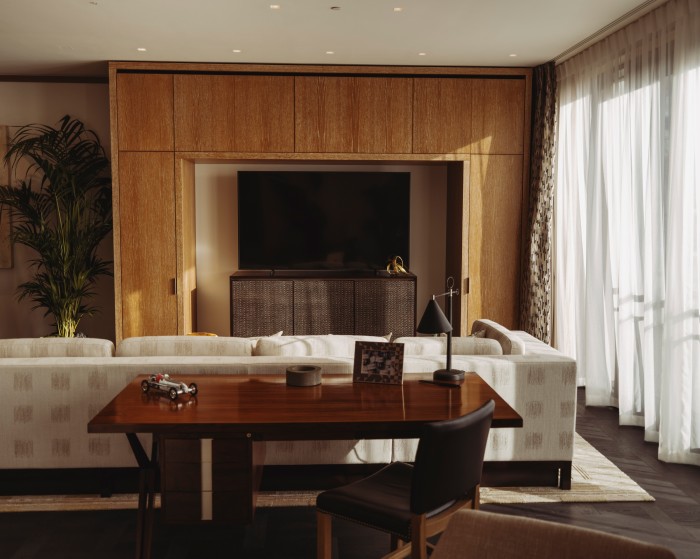
Kadoorie – who is also chairman of electricity behemoth CLP Holdings and holder of a Commandeur de la Légion d’Honneur along with a handful of other illustrious titles and honorary degrees – is in town to update on progress as the hotel moves into its final stages. He is modest in stature (he makes more than one joke in reference to his 5ft 2in height) and solicitous in manner, but his avuncular gentility belies the enormous power he wields in the Asian business world. He almost never gives interviews; but this project is one he has been personally invested in for most of the almost four decades he has run the company that his family has had shares in since 1890. And it’s especially close to his heart. He’s keen to make sure it is positioned to appeal not just to the Griffins of the world. “I think we’ve done our studying,” he says. “We are the oldest small chain in the world. And that brings a culture, it brings a DNA. [But] we’re the new kids on the block here,” he says. “We’ve got a lot to do to make ourselves part and parcel of the city… to receive a warm welcome here, to be part of the community.”
Peninsula isn’t a company that ever leaps before it (really, really) looks. The Hongkong and Shanghai Hotels (HSH) was founded in 1866; Kadoorie’s grandfather, Elly Kadoorie, opened The Peninsula Hong Kong in 1928, nearly 50 years after the family had arrived there from Baghdad. By 1988 – 60 years later – Peninsula had just two further properties, one in Manila (opened in 1976) and the other on Fifth Avenue in New York. Today there are 12 hotels across Asia, Europe and the Americas, including the new 177-room Peninsula Istanbul, which opened last month in, naturally, a prime, Bosphorus-side location. In a business where asset-light management companies are increasingly the prevailing model, HSH still owns anywhere from 20 per cent of a hotel (as in Paris, co-owned by the Qatari-based Katara Hospitality) to 100 per cent (as in Chicago and here in London: a 150-year leasehold from the Grosvenor Estate). There are 39 further residences in Shanghai (of which, as of June 2022, 31 were sold), and an ambitious clutch of them planned for The Peninsula Yangon (with local partner Meeyahta Development Limited: 112 residences, with two to four bedrooms, within central Yangon’s new Yoma Central Development – a project “unfortunately on ice, for the time being”, says Kadoorie).
This now-global reach notwithstanding, Peninsula’s Far East roots are a large part of its currency. “Iconic” probably isn’t too strong a word for the Hong Kong flagship’s original ’20s façade, or the inimitable views from the 30-storey tower, erected in 1994, that soars above it. The famous afternoon tea; the “Peninsula green” Rolls-Royce pick-up at Chek Lap Kok; the old-school valet boxes in every room or suite: they are the details that locate guests in a specific hotel culture.
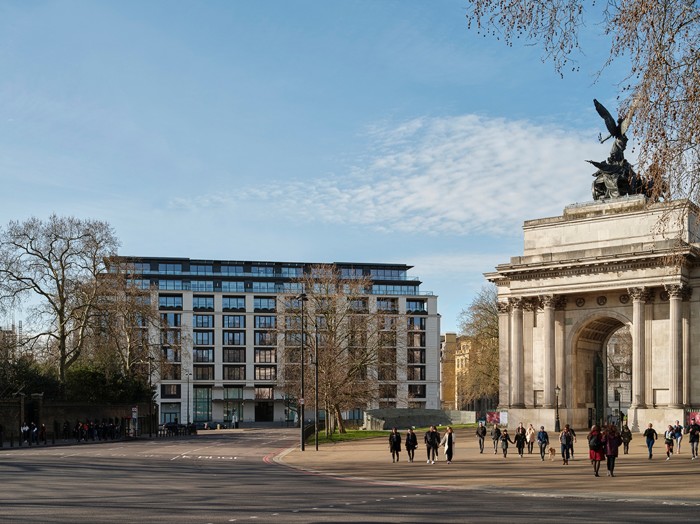
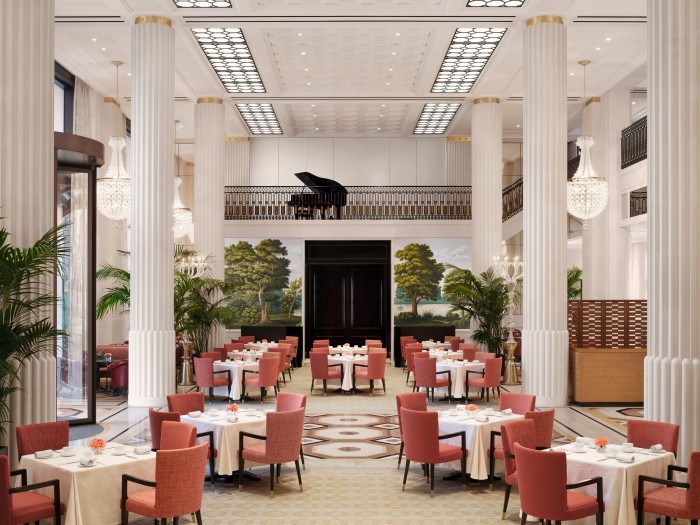
“This is a company that looks 100 years ahead,” Kadoorie says; but it’s also one that knows to trade, in ways tangible and more ephemeral, on its near 100-year history. I ask him if Marino – the flamboyant New York architect known for directional retail spaces for Louis Vuitton, Chanel and Fendi (and for Cheval Blanc Paris, the LVMH-owned hotel that is Peninsula’s prime competition there) – appreciated the need to interpret those signifiers. “What Peter brought was what we requested, and that was a lightness that is not necessarily traditional in London,” he replies. “He brought in, for an international guest, a certain levity. We did not want to be another [traditional] London hotel.”
It helps that there are multiple outlets across which to balance the nods both to the globetrotter and to the Belgravia address. The foyer, with its walls handpainted with scenes of Hyde Park by de Gournay, reprises the afternoon-tea traditions and energy, via a completely different design, of Hong Kong’s bustling lobby-lounge. A collaboration with the Royal Drawing School, founded by King Charles III, accounts for the nearly 200 original British artworks that hang in the 190 rooms and suites (where Marino has faithfully incorporated outsized, leather-lined versions of the valet boxes). The rooms, like the 25 residences, are quite pared back – “light”, per the brief, but still recognisably Marino: sexy onyx walls in the bathrooms, mahogany ones in the suites, nubbly touchable textures on metal side tables and fabrics.
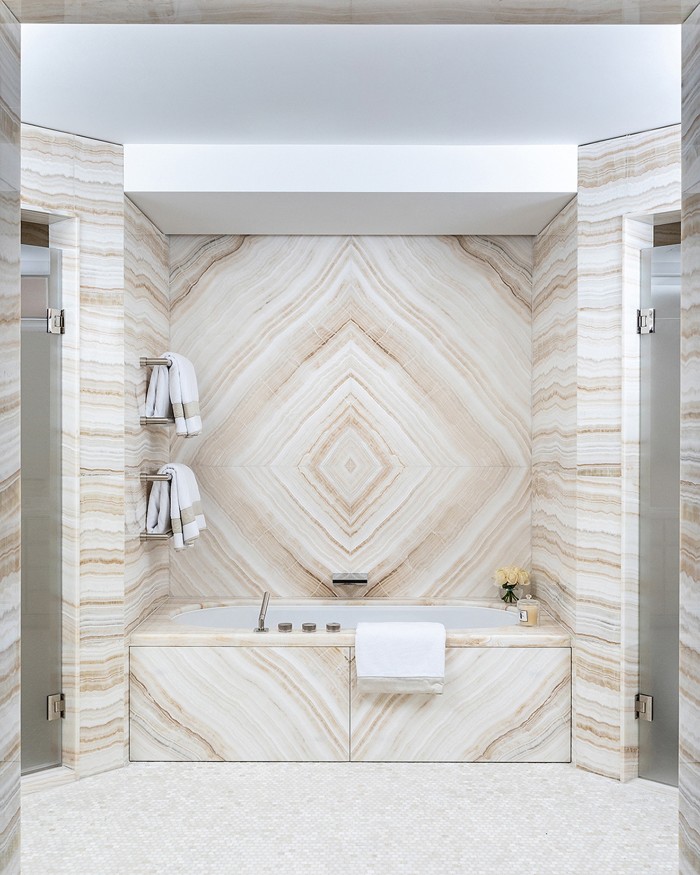
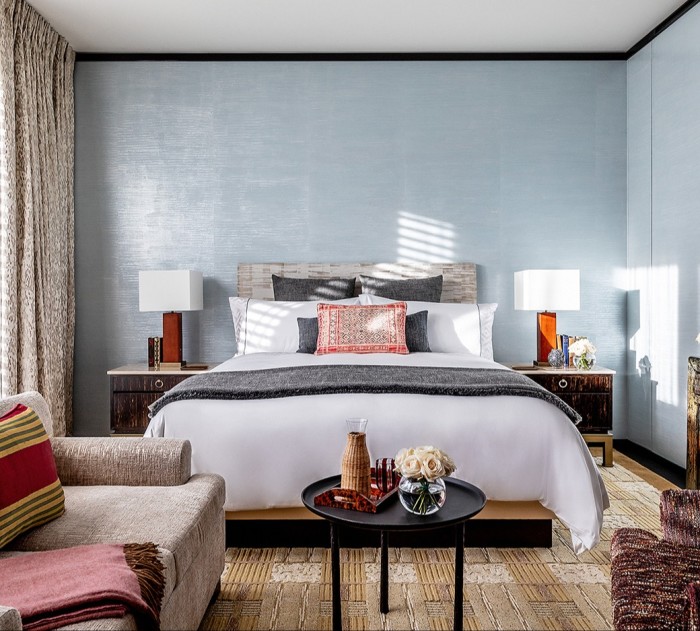
Canton Blue, the Chinese restaurant, packs some nice wows with intricately carved and lit coffered ceilings and semi-private booths lined with vivid ceramic plates. An adjacent street-level bar, called Little Blue, has speakeasy lighting and a massive wall of Chinese apothecary-style drawers. But it’s Brooklands, the rooftop restaurant-bar, that will probably emerge as the showpiece. It takes its name from the racing circuit and aerodrome in Surrey, built in 1907 (as does the Brooklands Lift Lobby), hosting a rotation of classic cars from the Brooklands Museum’s collection. The oval reception room is clad entirely in intricate wood marquetry depicting racing scenes and the bar will feature a 20m-long terrace. It’s a conspicuous nod to the China Clipper, the top-floor lounge at the Pen Hong Kong where guests arriving by helicopter are welcomed – and also to Kadoorie’s own well-known predilections for aviation and motor racing.
In the six decades he has spent in the family company (seven, he notes, if you count a later childhood learning the ropes in the Pen Hong Kong’s kitchens), Kadoorie has earned a reputation for future thinking. “We were the first in the world to use bedside panels [a touch control centre in one place] in the ’80s. We didn’t buy them from someone else; we brought in [a specialist satellite electrician] who knew the future of what people might want.” But initially, “[Peninsula Hotels] wasn’t in the least interested; there were people 40 years older than me on the board – I was the youngest. So another board member, David Liang, and I formed a little company, and we started quietly developing it ourselves. When it was a success, we said, ‘OK, Hotel Company, now you can buy this from us.’ At cost, of course – we didn’t charge them more.” To this day, he says, while other hotels offer similar tablet-based services, Peninsula is the only one to produce it proprietarily.
And then there was the Pen Hong Kong’s discothèque, The Scene, which Kadoorie plumped for in 1966. “The discothèque!” he says with a laugh. “Half [the board] didn’t want it, and the other half didn’t know what one was. After I persuaded them, one of the board members came up to me and said, ‘You know, you’re a young director. You’re allowed one mistake.” Again, that smile. “It wasn’t a mistake.” It became the hottest ticket in town for years.
The future of Peninsula, in his eyes, is as much about the “how” as it is the “where”. I ask him if the brand will expand beyond large urban centres into resorts. “It’s interesting, because 70 years ago we thought of it. We actually have Peninsula Resorts as part of our DNA, though we don’t have any resorts as such. At one point [in the ’90s], we had a huge piece of land in Phuket, and we kept it for nearly 15 years” – until the once-idyllic Patong Beach, to which the land was adjacent, began to be denuded by mass tourism. “At the end of the day it was a question of being in the right part [of the island]. But it’s definitely not that we haven’t thought about it.”
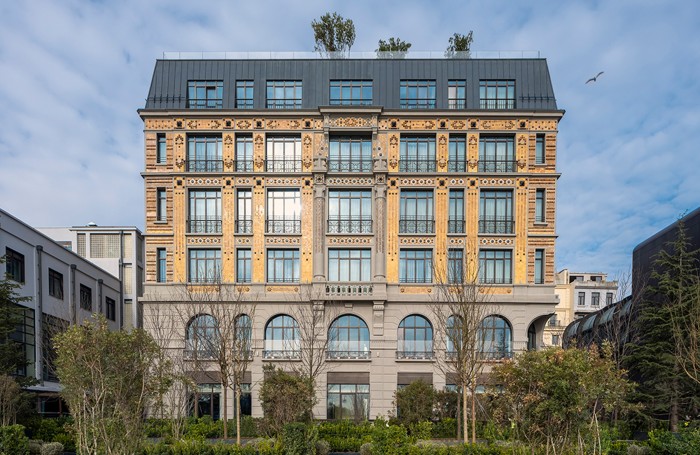
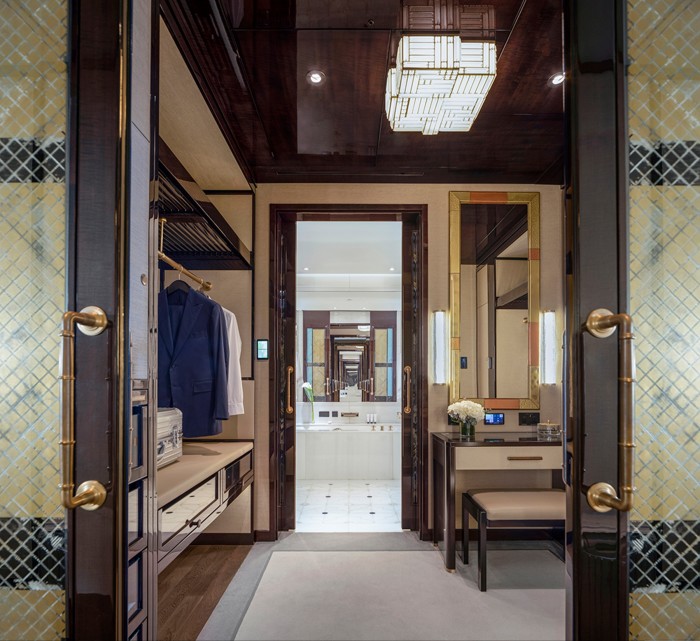
These days, he says, “we’re looking at how do we expand the use of the name of The Peninsula brand. It can be wider than just the hotels. It can be retreats, it can be resorts. It can be homes for the elderly, even, in a building that is associated [with one of our hotels]. We’re looking at all of that.” (Longtime HSH CEO Clement Kwok had more circumspect words: “The Peninsula London and The Peninsula Istanbul, as well as the Peak Tram project [in Hong Kong], which was completed in 2022, together form the most substantial capital expenditure programme in our company’s history. So our focus right now is delivering those and then we will look forward to the next project.”)
And Hong Kong, Peninsula’s birthplace and his own: is he bullish, or sceptical? “Oh, I think Hong Kong will bounce back like a rubber ball.” Really? “Yes, and higher than when it dropped. It’s very resilient. People are hard-working, focused. When you think that Guangdong province has a population almost equal to France and England combined, nearly 130 million people living there; that’s a powerhouse for China... I think when China gets over the Covid problem, that friction, you’ll find [inbound] tourism there will blossom. And we’re a wonderful gateway for that.
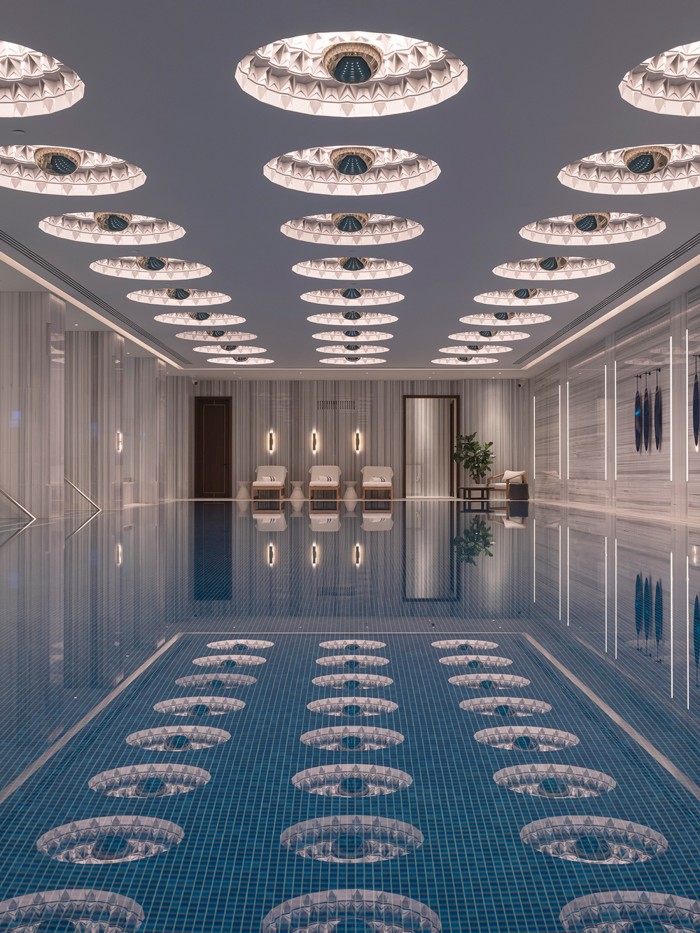
“Europe is also wonderful place,” he continues. “I have a home here... but I must say I do enjoy Hong Kong.” A reference to the labours expended these past few years, in what was a very labile England, to bring this project into the world? “The culture of Asia is that you get things done quickly, and the standards are very high. You can achieve that also in Europe, but it takes far more effort, more energy, more time. And with Brexit and, of course, Covid, that’s added to the problems. [They] both have their pluses and minuses.” But bring Asia expectations here, he says, and “you will find that you cannot run at the same pace”.
Fortunate, then, that Kadoorie is about the 100-year view. His 31-year-old son, Philip, joined the board in 2017, and is also a non-executive board director at HSH. His father is happy to see the company’s past continue to galvanise its future; and content, too, to remain at the helm – for now. “They always say the first generation makes it, the second consolidates, and the third loses. I’m the third. And I hope I’m not going to lose it.” One final smile. “I’m 81 years old, so there’s still an opportunity to escape.”
peninsula.com; prices and opening date to be set

Comments